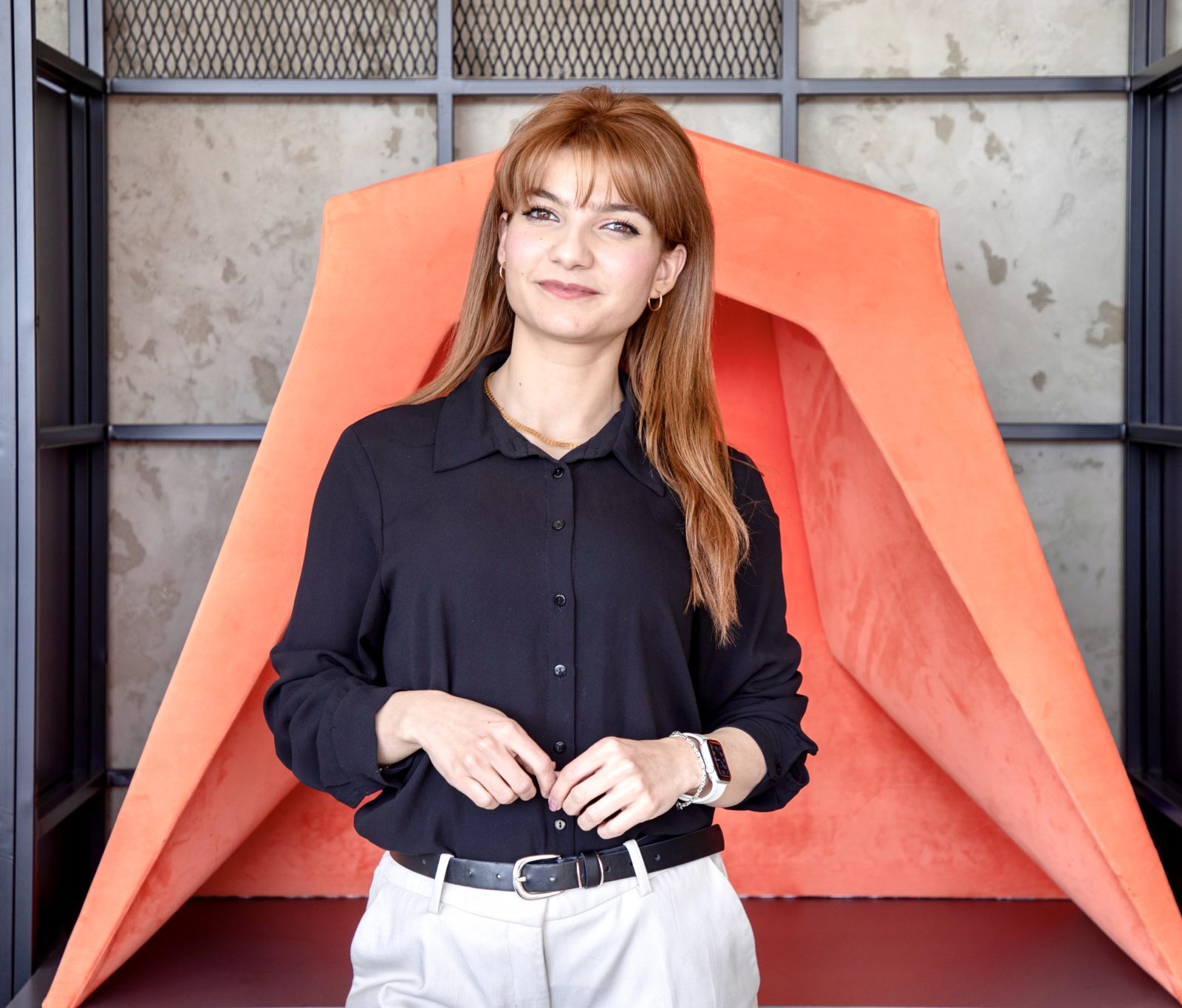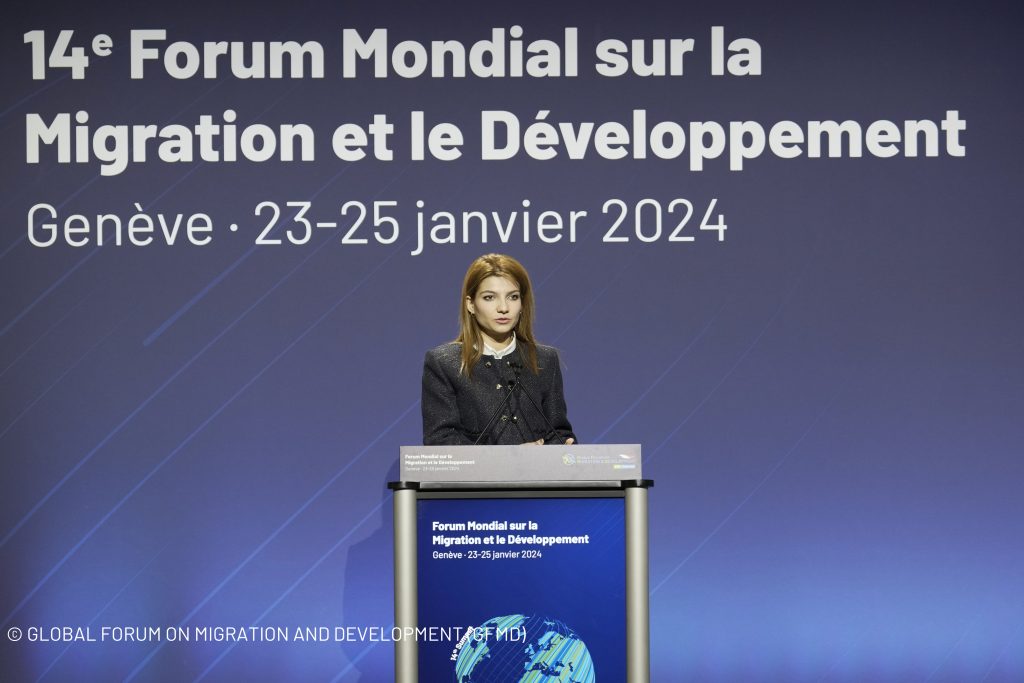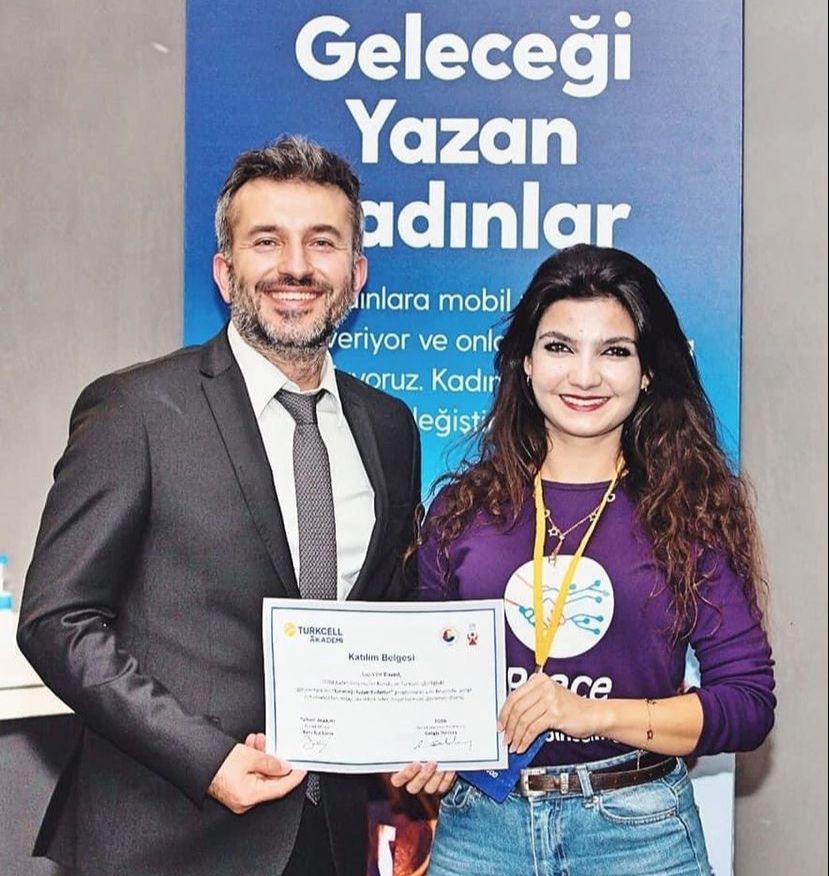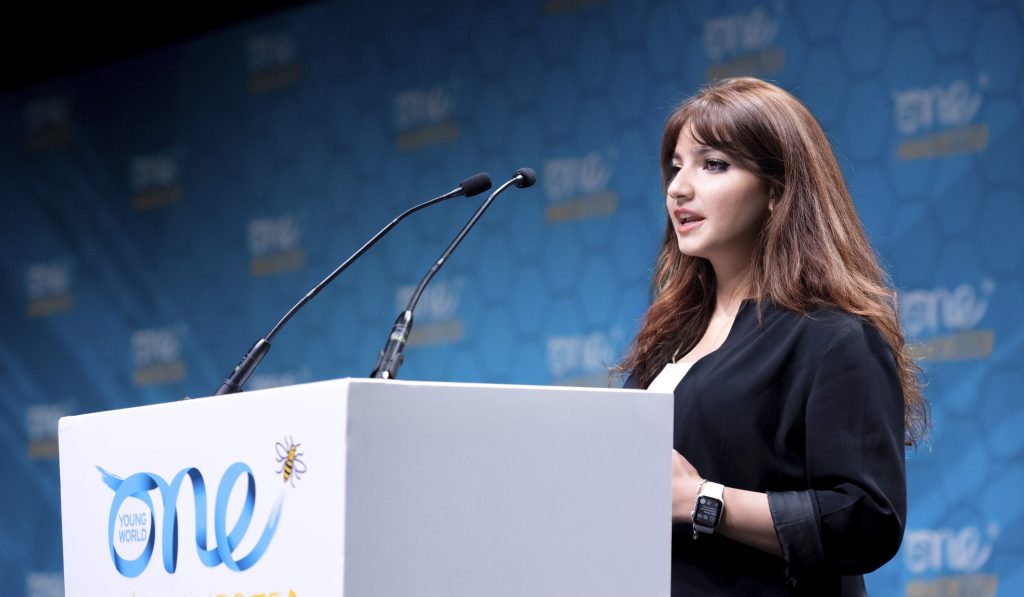
For World Mental Health Day, EUDiF Project Assistant and Ukrainian diaspora member Liza spoke with Jin Dawod, a computer engineer, diaspora social entrepreneur, co-founder of Urfa Agro Women Cooperative, and founder of the mental health platform “Peace Therapist”— an award-winning social enterprise providing life-changing mental health support across Turkey and the Middle East and North Africa region. Jin is originally from Syria and now lives in Turkey. In 2024, Jin has received the Nansen Refugee Award for Europe 2024 in the recognition of the work of Peace Therapist.
Trigger warning: This article contains material of a highly sensitive nature including trauma, mental health, death, war and sexual assault that may be triggering for some individuals.
Dear Jin, thank you for being with me today and agreeing to talk about mental health in the migration and diaspora context. Could you please tell us about your personal journey and what motivated you to start the Peace Therapist initiative?
Mental health is a sensitive topic to me, and it’s crucial to talk about it today. I never planned to be a social entrepreneur or to found Peace Therapist. My life story led me to this work when I came from Syria to Turkey.
In Syria, it felt like living a horror movie every day. As a person, I prefer not to talk about negative things and always focus on positives, but that period was so totally negative that I sometimes skip over it when talking about my life.
When we crossed the border from Syria, it was the last possible day we could have stayed there. We had been waiting for that moment for an entire month, living in the rubble of our home. My room was exposed to the street, and the areas near our home were being bombed.
One morning, my father said it was time to leave. We ran out in our pajamas and got into the car, with my father driving as fast as he could. As we approached the border, we had to take small baby steps to make sure we wouldn’t step on a mine. I still have deep trauma from that day and haven’t been able to forget a single moment.
At some point, our neighbor called to tell us our house has been destroyed by a bomb, and some of our neighbors had died. My emotions were very confused at that moment: on one hand, I was grateful that our family had survived and was together, but on the other hand, I couldn’t stop thinking about our neighbors and the home where I had spent my entire childhood. We left with nothing to remind us of home because we thought we would be returning in just one month.
Just when I thought the horror had passed, I began to feel worse. After we rented an apartment in Turkey, I started experiencing psychological problems. I couldn’t leave home for a year, which was an incredibly difficult time for me. I was 14 years old, and I desperately wanted to go to school, see my friends, and return to my normal life. I couldn’t accept the new reality.
Thank you for sharing your brave story. As a Ukrainian, I understand the heavy feelings associated with war and the need to leave your home country. You’re surrounded by constant challenges and emotional instability.
Especially when you arrive in a country where people speak a different language and have a different culture. You were forced to leave, and sometimes people don’t welcome refugees making you feel unwanted. So, now, you’re facing a new challenge on top of the one you already carry with you.
Tell us more about Peace Therapist, how it works and the meaning of the name?
Peace Therapist is a social-technology initiative where we provide psychological support both online (90%) and face-to-face. Peace Therapist operates in three ways: we offer individual paid sessions, provide customized packages for organizations tailored to their needs (for example, we cooperated with the International Labour Organization to support people affected by the earthquake in Turkey and Syria) and offer free sessions to refugees and disadvantaged groups. Maintaining the ability to provide free services can be challenging as we grow and aim for sustainability, but we will never compromise on this commitment. We will always remember why Peace Therapist was founded.
We have over 100 psychologists speaking English, Turkish, Arabic and Kurdish and who specialize in various fields. We use AI to match support seekers with psychologists according to their specific needs, such as depression, trauma, refugees, and children’s mental health. A large part of our team consists of refugees, diaspora psychologists, and members of the host community. This cultural cohesion helps combat racism and stereotypes.
The name reflects our goal: to foster inner peace and contribute to global peace. If individuals achieve inner peace, they will have healthier relationships with those around them and, eventually, healthier communities will lead to healthier countries. Even large-scale wars begin with individuals. In this way, we aim to contribute to peacebuilding and conflict resolution by addressing problems at their roots.
In your experience with the platform, what specific challenges do refugees face when it comes to mental health?
The main challenge is trauma, especially when you come to a different country after experiencing war. According to research, three out of four refugees need psychological support, but in my opinion even the fourth person needs it.
When you move to a new place by choice, it’s already difficult to adjust. But for refugees, they are forced to leave. They can’t bring anything, they can’t speak their native language, and they may face racism, economic struggles, and difficulty finding a job. You must start your life from zero.
It’s especially difficult for children and women, who are often seen as vulnerable and may experience sexual harassment. As a girl and a computer engineering student, I faced many challenges as a refugee. Being a girl adds an extra layer of hardship to the journey.
What does this project mean for you?
The most important thing for me is energy. I don’t see it as work: it is my life’s mission. I enjoy what I do, and I forget about all the hard times while working. When I hear the amazing feedback from the beneficiaries, my heart melts and my eyes fill with tears as I see how the project has impacted their family lives. This is exactly what I needed back then. Maybe I wouldn’t have lost a year of my life, but at the same time, I might not have created a platform like this. It’s fate.
I was lucky to have my family’s support, even though they had lost everything. I used to think parents were heroes and didn’t have problems. But when I heard my father say that he wanted a better future for his children, even after losing everything, I was determined to make him proud. He supported me, and I tried to support him. In this way, we got through that difficult situation together.
Do you have any plans for development of the platform?
The mission of Peace Therapist is to support all refugees, and we are eager to grow and help even more people. We currently have beneficiaries from 26 countries and in the future, I would like to expand our work, for example, by collaborating with Ukrainian psychologists to support Ukrainian refugees in the current war.
Could you share any advice or words of encouragement for mental health support of diaspora and migrants?
First, get to know yourself well. If you understand what you want to do, focus on your own goals. Hard times won’t last forever.
My message to refugees: I know it’s difficult to hear “be strong”, but as someone who has hit rock bottom, I can tell you that when you believe in yourself and know what you want to achieve, you can always create the life you’ve dreamed of, starting from the moment you decide to work on it. Never underestimate yourself. You will be surprised by the results you’ll achieve one day. Believe in yourself, and remember that taking small steps every day is essential to making your dreams a reality
On the topic of mental health, diaspora actors like Jin play a crucial role in offering culturally sensitive care tailored to the unique experience of refugees from their home country. This support can significantly contribute to fostering resilience, promoting healing, and aiding to the integration process. In 2022, the Ukrainian diaspora was among the first to not only provide direct assistance but to also organize psychological support in the Ukrainian language within host countries, addressing the specific emotional and psychological needs of displaced individuals. This has raised great awareness of the crucial importance of mental health in the diaspora and in the country, and is one reason why I was particularly eager to speak to you about the work of Peace Therapist which is filling a crucial gap in care. Thank you for taking the time to share your story with me and our readers.
If you need psychological support, contact info@peacetherapist.com. If you would like to support Peace Therapist, visit the website for information on volunteering, donations, content creation and more.
Peace Therapist actively welcomes collaborations with organizations to support disadvantaged groups, including refugees, women, children, and staff mental health. With extensive experience in these areas, Peace Therapist is continually seeking new opportunities to make a positive impact.


